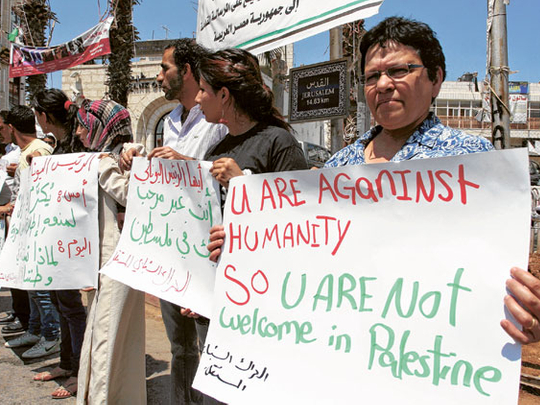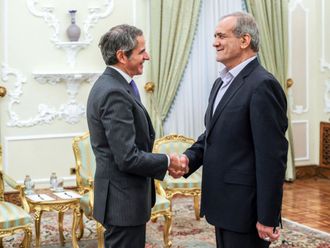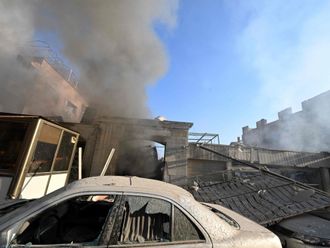
Dubai/Cairo: The organisers of the Gaza aid flotilla are not ruling out the possibility of the fleet sailing from Egyptian ports should their efforts to sail from Greece fail to materialise.
Pro-Palestinian activists in Egypt have taken up the flotilla's cause, inviting organisers to launch the fleet from Egypt after Greece made it clear that it would not allow the Freedom Flotilla 2 to launch from its ports.
A source close to the flotilla's organisers told Gulf News that the Free Gaza Movement, which is organising the flotilla, had already been in contact with the Egyptian government about the issue and would not rule out sailing from Egyptian ports.
Organisers held a meeting earlier this year with former Egyptian Deputy Prime Minister Yahya Al Jamal and the foreign ministry official in charge of Palestinian affairs.
The Egyptian officials clarified their position on the Gaza blockade at the meeting. "[They] stressed two points: that the government recognises Gaza as occupied and therefore Israel is responsible for the population there, and that the peace treaty with Israel involves certain responsibilities for Egypt regarding the [shared] border," the source said.
The officials also told the organisers that they were trying to avoid a situation in which Gaza is "offloaded" to Egypt — purportedly referring to a situation in which Israel would relieve itself of any responsibility pertaining to Gaza and, in effect, transfer it to Egypt.
Officials at the Egyptian foreign ministry turned down a Gulf News request for a comment, tersely saying the initiative is still being discussed. However, Hani Sadeq, a professor of political science at the Suez Canal University, said that Egypt's military rulers were unlikely to allow the flotilla to sail from the country.
Playing it safe
"It is unlikely that they will agree to allow the sailing of the flotilla [from Egypt's ports] lest tensions with Israel... escalate. Instability inside Egypt would not encourage them to run the risk of opening another front of turmoil with Israel," Sadeq said.
The Egyptian government, he said, was more likely to evade public pressure by permanently opening the Rafah border crossing with Gaza.
"The corporatist interests of the Egyptian military do not necessarily match the interests of the people of Egypt," said the source close to the flotilla's organisers.
"As such, pressure from the United States and Israel would be paramount on Egyptian military leaders".
The cause has, however, been taken up by what is largely regarded as Egypt's most influential newspaper, Al Masry Al Yawm.
The paper has started a campaign calling on the organisers to sail from Egypt if they do not succeed in doing so from Greece.
Lina Atta Allah, a reporter for the paper who has been involved in the campaign, said it may be a challenge to have the call resonate in Tahrir Square where activists are busy with the revolution that ousted the Hosni Mubarak regime.
"The way we're pitching it is that one issue doesn't take priority over another, that all the issues are connected, and that this is one struggle against oppression," she said, adding that she has already seen positive signs. The campaign, she said, was being organised for two reasons.
Righting its wrongs
"Firstly, Egypt's post-revolution position towards the blockade of Gaza must change completely. Egypt should [now] play an active role in ending the blockade. Second, it is an opportunity for Egypt to rewrite a rather shameful history of having contributed to the blockade under the Mubarak regime."
Lina said slogans supporting the campaign had already started appearing in Tahrir square and the response by the paper's readers has been overwhelming.
Narmeen Saleh, a pro-Palestinian activist said that because of growing public anger at the government's policies, "officials will not block public support to the campaign".
"This step will reassert Egypt's regional status, which suffered terribly under Mubarak," she said.












